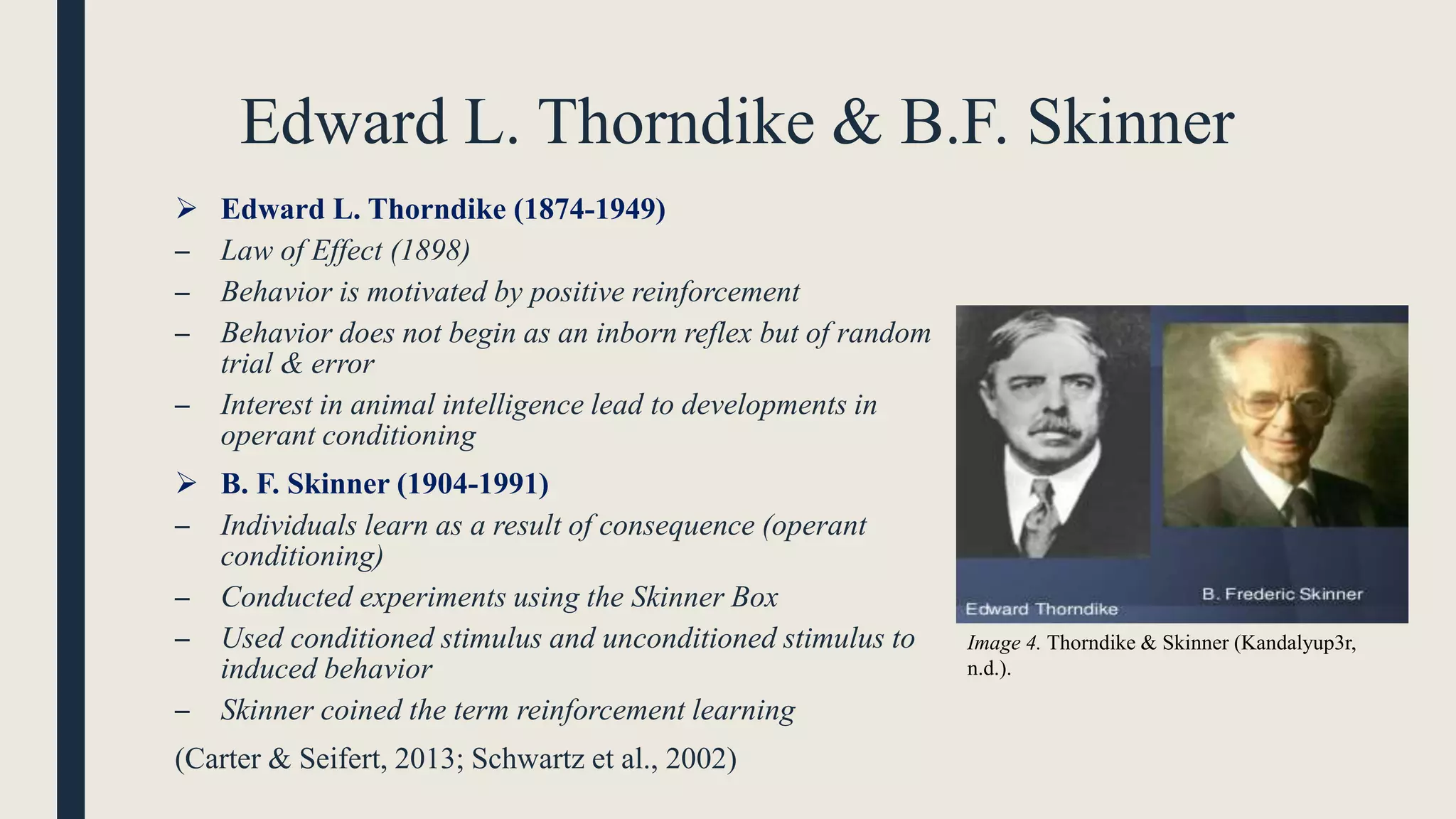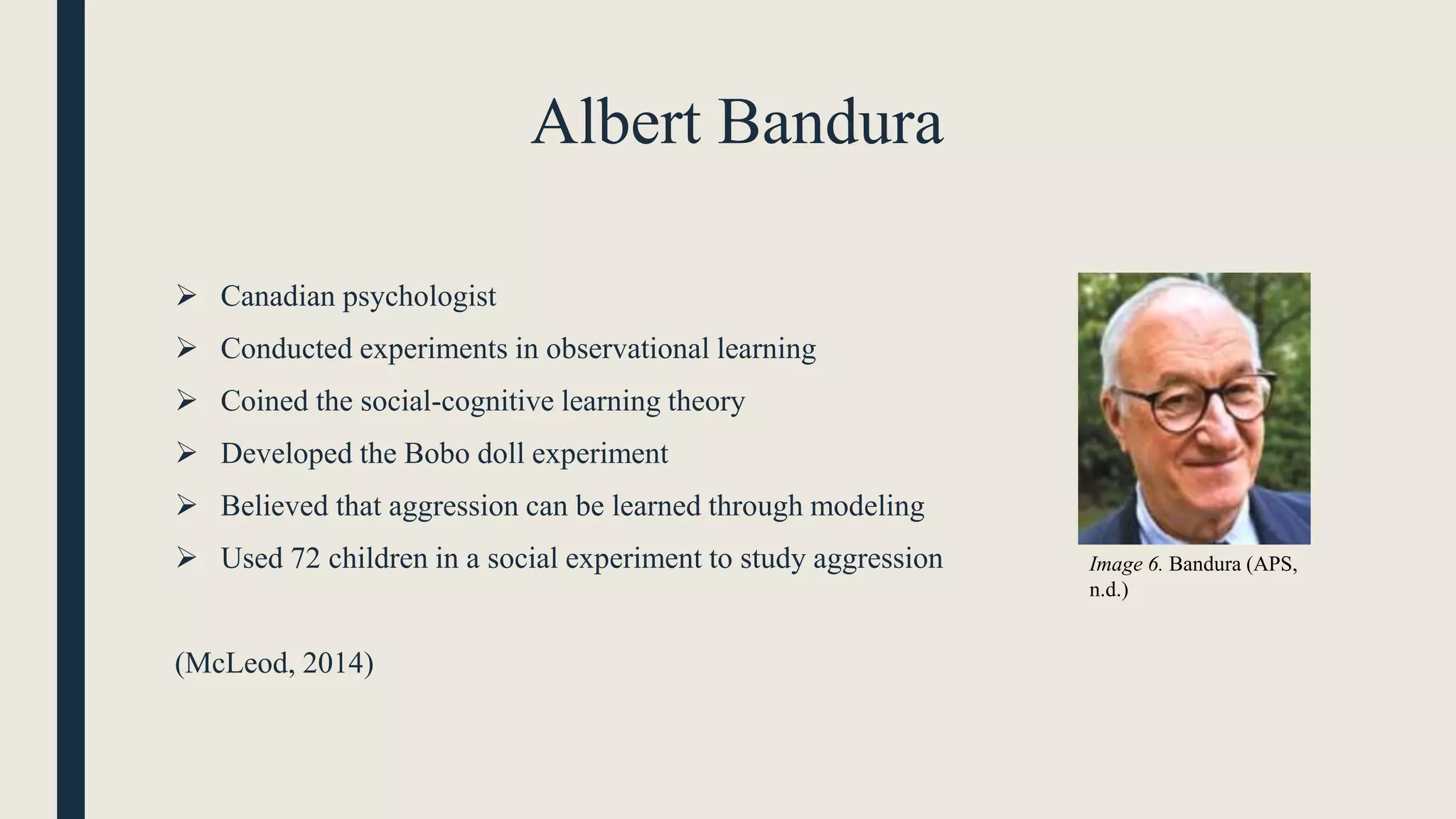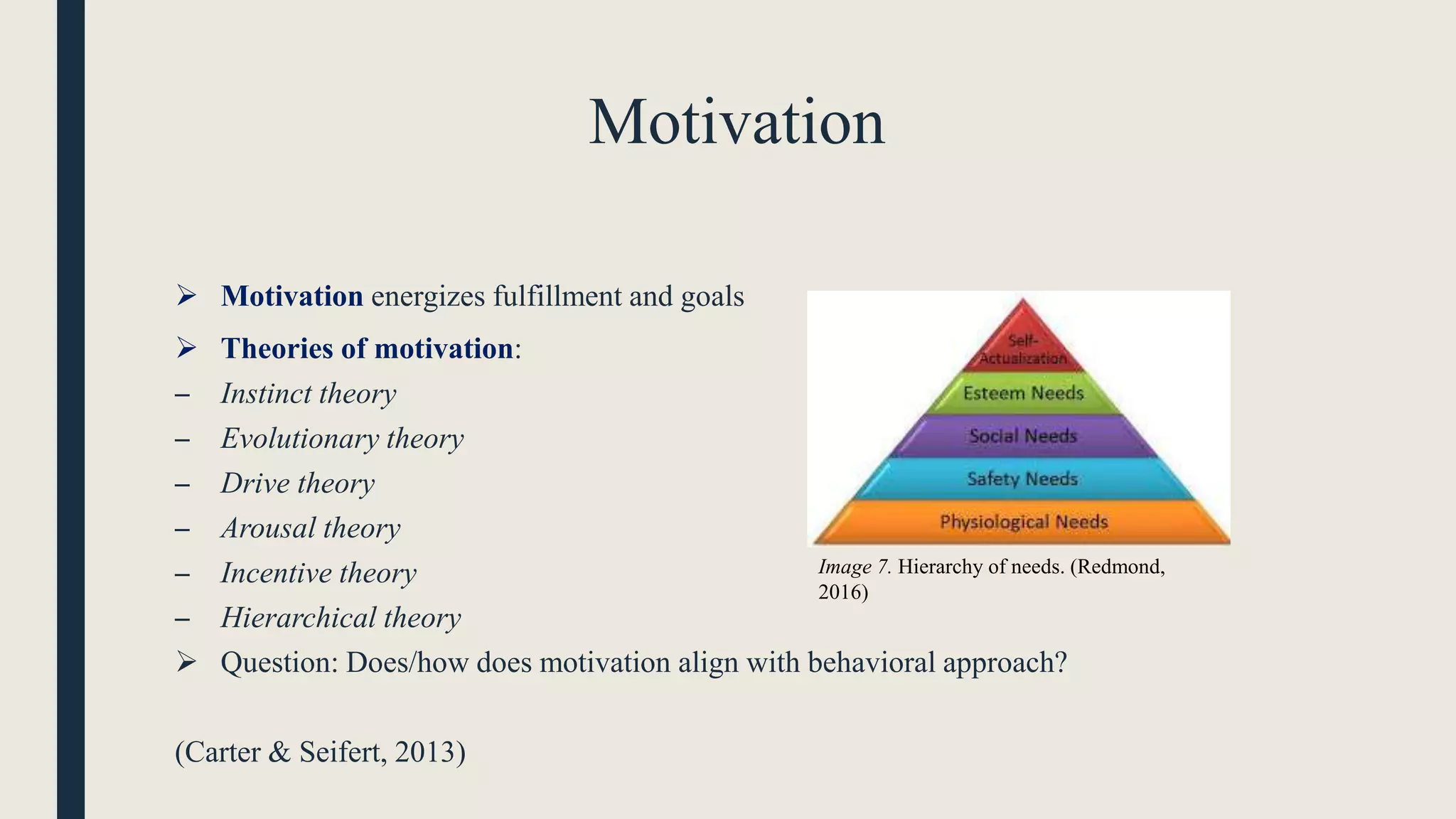The document provides an overview of behavioral psychology, emphasizing behaviorism as the study of observable behavior through processes such as classical conditioning, operant conditioning, and observational learning. Key figures like Ivan Pavlov, John B. Watson, Edward Thorndike, and B.F. Skinner are discussed in relation to their contributions to conditioning theories. Additionally, the document addresses the role of motivation and ethics in psychology, highlighting its significance in clinical applications and the development of treatment approaches.

![Introduction
Behaviorism is defined as, “the study of learning based on directly observable
behavior” (Carter & Seifert, 2013, p. 187). According to this concept, human behavior
can be explained. Key figures of behaviorism have dedicated their studies to explaining
both animal and human behavior, with regard to internal and external influences.
Additionally, learning is a process of “lasting change in knowledge or behavior based
on experience” (Carter & Seifert, 2013, p. 186); however, conditioning is demonstrated
by training animal and/or human behavior (Carter & Seifert, 2013). The most well-
known behavioral approaches are classical conditioning, operant conditioning, and
observational learning [as see in the social-cognitive learning theory] (Carter & Seifert,
2013). Importantly, motivation is connected to human behavior (Carter & Seifert, 2013)
[illustrated later in this presentation].](https://image.slidesharecdn.com/behavioralpsycpresentation-170826133047/75/Behavioral-Psychology-2-2048.jpg)









![References
APA. (2016). Ethical principles of psychologist and code of conduct. Retrieved from http://www.apa.org/ethics/code/
APS. (n.d.). Albert Bandura to receive National Medal of Science [Image 6]. Retrieved from
https://www.psychologicalscience.org/observer/albert-bandura-to-receive-national-medal-of-science
Carter, K., & Seifert, C. M. (2013). Learn psychology. Burlington, MA: Jones & Bartlett Learning.
Cherry, K. (2017, June 12). John B. Watson- pioneering psychologist biography. Retrieved from
https://www.verywell.com/john-b-watson-biography-1878-1958-2795550
Kandalyup3r. (2015, Febrauary 21). Conductismo [Image 2 & 4]. Retrieved from
https://www.slideshare.net/kandylaup3r/conductismo-44972371/5
Kengelhardt. (2012, April 15). Classical conditioning [Image 1]. Retrieved from
https://www.slideshare.net/Kengelhardt/classical-conditioning-12552587
McLeod. S. (2014). Bobo doll experiment. Retrieved from https://www.simplypsychology.org/bobo-doll.html
McLeod. S. (2014). Skinner operant conditioning [Image 3]. Retrieved from https://www.simplypsychology.org/operant-
conditioning.html
Redmond. B. F. (2016, September 6). Need theories [Image 7]. Retrieved from
https://wikispaces.psu.edu/display/PSYCH484/2.+Need+Theories
Schwartz, B., Wasserman, E. A., & Robbins, S. J. (2002). Psychology of learning and behavior (5th ed.). New York, NY: W.
W. Norton & Company.
Subliminal Hacking. (n.d.). Social engineering is it ethical [Image 8]? Retrieved from
http://www.subliminalhacking.net/2010/08/05/social-engineering-is-it-ethical/
Wise Geek. (n.d.). What is observational learning [Image 5]? Retrieved from http://www.wisegeek.com/what-is-
observational-learning.htm](https://image.slidesharecdn.com/behavioralpsycpresentation-170826133047/75/Behavioral-Psychology-12-2048.jpg)